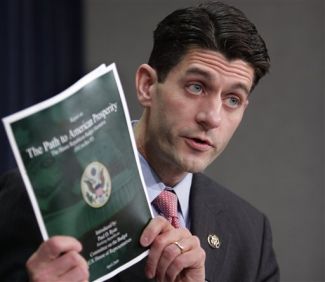Black Box Controversies
From The New CriterionNews and opinion — that’s what we expect from the media, isn’t it? True, as is now apparent to most people without a vested interest in upholding the media mythology, the rigid separation of the two has long been sacrificed to the thrill of doing one’s bit to make the world a better place — which, in the opinion of many journalists, is what they have made their business. But what if there is a third thing which is neither news nor opinion but something which has now come to claim an equal place beside them — if not to supersede them — as the media’s stock in trade. Consider the following passage from The New York Times’s “Opinionator” blog by Timothy Egan headed, “Billionaires Unleashed”
Then there are the Koch brothers, David and Charles, who’ve given to cancer research and the arts, yes, but also pour millions into efforts to keep average workers from getting a fair shake, and against laws that protect clean water and air. They plan to spend millions more in next year’s election to support policies that ensure the gap between rich and poor grows ever bigger.
I feel confident in saying that it is not really Mr Egan’s opinion that the Koch brothers are using their money “to keep average workers from getting a fair shake” or to dirty up the air and water or to make the gap between rich and poor larger. He might be an idiot, I suppose, but I doubt it. Given a truth serum or with a gun to his head, even he would have to admit he knows well enough that, however misguided the Koch brothers may be, they don’t set out to do any of these things. On the contrary, we can be pretty sure they are like the rest of us in hoping and believing, doubtless mistakenly, that the results of their “efforts” will be social and economic outcomes that even Mr Egan would approve. But demonstrating wherein they are mistaken is a lot harder work than attributing to them vicious or anti-social motives, and The New York Times is very far from being the only media outlet these days to prefer the drama of the latter to the dull argumentation involved in the former.
What Mr Egan is producing — or re-producing — here is what those in the business now call “talking points” of the left. Anything that “billionaires” do is automatically suspect and the more so if it involves an attempt on their part to influence public opinion. Moreover, these particular billionaires favor those politicians and political tendencies inclined to think that billionaires, like everybody else, should be entitled to keep more of their own money than the opposite political tendency does, so it becomes a natural political meme to accuse them of wanting to interfere with and obstruct all the good things which, by unspoken assumption, extracting more money from them in taxes could be expected to accomplish. It’s not exactly that Mr Egan and the many in the media who share his views do not believe this themselves. It’s rather that, just as a lawyer may forcefully argue his client’s innocence even when he privately believes him to be guilty, he sees himself as being in the business of advocacy and persuasion, not of analysis and opinion, and therefore honor-bound to make the best case he can.
His “talking points” are a serviceable modern translation of the classical “rhetoric,” which has long been recognized as something related to but apart from mere opinion. No one capable of writing what Timothy Egan writes in those two sentences could actually believe what he professes to believe; but he believes it enough to believe it a legitimate tactic in the effort to persuade others to vote one way rather than another. His tools of persuasion are emotional rather than rational, and the emotions he evokes are fear and anger. Such rhetoric may from time to time involve the incidental bit of reasoning but, as this example suggests, the current practice of rhetoric in the American media is primarily a technique of self-identification with one another political tendency. Its excesses are thus not just incidental to passion but useful in proclaiming a loyalty which, it is to be hoped will also devolve upon others who will find the cause it serves worthy of their loyalty. It is, we might say, the planting of a flag that, we hope, others will come to rally round.
It would be too much to expect politicians to abandon emotion for reason in their rhetoric, though it has been known to happen. When Nancy Pelosi calls Republican budget proposals “a war on women” she’s only doing what comes naturally and what has probably always been done by politicians seeking to build consensus. That as many Republican women may be for the proposals as there are Democratic women against them troubles her not at all. When she speaks of a “war on women” she means not what Republicans think they are doing but what she thinks they are doing — because she cannot do her job without thinking the worst of everything they do and saying so loudly and often in order to keep partisan passions stoked. Yet up until relatively recently, we have been able to rely on the media, at least the serious media, to provide a corrective to such unbridled political passion and to submit the rhetorical excesses of both sides to some degree of rational examination. When the media fail to do this, they add fuel to the fires of partisanship instead of banking them down, and the rhetoric, unchecked by those whose job it is to stand apart from it but who instead have joined in themselves, flashes out of control.
But the advocacy paradigm has presumably served the media well in building up their audience, since drama and conflict are more interesting to most people than wonkish arguments about the marginal effects of particular policies in which those who exercise power, or those who want to make responsible judgments about the exercise of power, must take an interest. If it has helped them to keep their audience as large as possible, the technique has served less well those of us who to follow along, so far as we are able, with the wonks.
I’m ashamed to admit I have only recently realized that “wonk” is “know” spelled backwards, though the OED calls this etymology of the word “fanciful” — doubtless some wonk’s attempt to dignify his disreputable trade. That the word has become a pejorative, however, suggests the media culture’s contempt for mere knowledge when there is passion to be had. I fancy that if one did a study of the media’s uses of “wonk” one would find it almost invariably used to describe those rhetorical no-go areas for journalists where, as they mean to assure us, we don’t want to go either if we wish to avoid the fate of the terminally unhip and the socially undesirable. There’s plenty of interest in how each side may be marshaling and deploying its army of wonks against the other, but little or none, by the very definition of wonkery, in the substance of what the wonks may be employing their ingenuity on.
The wonks themselves may not mind very much about this, as they are left largely undisturbed by public scrutiny to get on with their wonkish tasks. Media outlets also benefit by sticking to the more interestingly passionate rather than the less interestingly rational side of things. And they benefit, too, almost as much on the advertising as on the subscription side of the business, where there is one. The Washington Post and other politically-dominated papers and radio stations in the Washington area, for example, have made a bundle of money recently out of the ads taken out as part of the titanic public relations struggles between Boeing and EADS North America, the American branch of the European makers of Airbus aircraft, over the new Air Force tanker and between Pratt & Whitney and the GE-Rolls-Royce consortium over the second engine for the F-35 fighter.
Before these struggles were decided on the side of Boeing and Pratt & Whitney respectively, the percentage of those exposed to their ads and those of their competitors who could even begin to make a reasoned judgment on the merits between the two contenders in each case would naturally be vanishingly small, so the campaigns were conducted entirely on the basis of sloganeering about “jobs” and national security, and who’s not in favor of those? I can’t have been the only person to have longed for some disinterested and scientifically or technically knowledgeable author, say the Post’s Joel Achenbach, to take us through the substantive points at issue in both controversies and come to some reasoned judgment. But I suppose if he had done that, the Post might not have had enough money to continue paying Mr Achenbach’s salary. As it was, one could only guess which side was in the wrong by a rough and ready judgment as to which had spent the most money on advertising. If their rational case was so good, why did they have to whip up public passions?
For those of us who take an interest in political news, there are more and more controversies like this that are conducted in the media, as in the political arena they report on, in such a way that we are shut out from making any judgment of our own. These are black-box controversies — with no user-serviceable parts. We may see the heat and light they emit, but what is actually producing the energy is for the wonks on either side. In this they are like those black-box movies which begin from the assumption that their audience wants to see exciting and dramatic and often explosive things happening but that it doesn’t want to be bothered with tedious narrative explanations of how these things came to happen. That’s what story-telling used to be, but nowadays the story has to be speeded up and radically abridged to suit the taste as much of political junkies as of movie-goers. Neither class of people would appear to have much interest in or concern about what they are missing, since one so seldom hears any complaints about it.
 |
Of no recent cause of contention has this been more true than that of “The Path to Prosperity,” the budget plan by the chairman of the House Budget committee, Congressman Paul Ryan of Wisconsin, to cut the deficit and bring the fisc from deficit back into surplus — in thirty years’ time. It might seem a modest enough goal, but lots of people think it outrageously austere. No one can be surprised that the Nobel Prize-winning economist Paul Krugman wrote in The New York Times that “the G.O.P. plan turns out not to be serious at all. Instead, it’s simultaneously ridiculous and heartless.”
So the pundits who praised this proposal when it was released were punked. The G.O.P. budget plan isn’t a good-faith effort to put America’s fiscal house in order; it’s voodoo economics, with an extra dose of fantasy, and a large helping of mean- spiritedness.
In short, Congressman Ryan is engaging in a fraud so vicious and obvious that it is astonishing any of these “pundits” with half the brains of Professor Krugman could have been so “punked.” What is not at all astonishing is that this is the rhetorical line that the professor should have taken, since there can be few if any G.O.P. plans promulgated during the years he has been adorning the Times’s op ed page that he would not have described in similar terms. You can’t say we don’t know what we’re getting whenever he takes up his pen, but that means we also know he is going to be singularly unhelpful to those of us who are not Nobel Prize-winning economists and who might otherwise have expected some genuine guidance from him. The only sort of guidance he can give is the same kind you get by estimating the relative expenditures on advertising of Boeing and EADS — which is also the kind taken by Aaron Goldstein of The American Spectator who wrote that “you know Paul Ryan is on to something when Paul Krugman calls his proposed budget ‘ridiculous’ and ‘megalomaniacal’.”
The oddest part of all this is that, whatever may be Professor Krugman’s talents as an economic analyst, he appears not to have thought it worth employing them in an independent assessment of Congressman Ryan’s proposals. Instead, he relies on analyses by the (inevitably) “nonpartisan” Congressional Budget Office and the left-wing (not identified as such) Center on Budget and Policy Priorities to trash the congressman’s seriousness and heart. He may of course be right about the budget plan’s assumptions’ being wrong, and it does seem that the CBO picked up on an error in forecasting which derived from some bad numbers supplied by the Heritage Foundation. But even Professor Krugman has been known to make mistakes. If he’s going to assume a vicious or malign intention behind Congressman Ryan’s mistakes — indeed, behind his whole project — you’d think that he could at least be troubled to explain why, and to show his work, instead of just making the bald assertion and expect to be believed on trust.
Not anymore, apparently. Nowadays on the Times op ed page as much as in its blogs we expect talking points instead of argument. So, increasingly, do we expect them from others whose authority once inspired trust. Nonpartisan” as applied to the Congressional Budget Office is a sort of Homeric epithet, like “wine-dark” of the sea or “rosy-fingered” of the dawn, left over from the days when non-partisanship was not so rare in the land as it is today. But the CBO’s non-partisan bona fides are to say the least tarnished by its willingness to stretch the public’s credulity to the breaking point on behalf of the Patient Protection and Affordable Care Act, now generally known as Obamacare, early last year. Anyone who has been paying attention is likely to find its non-partisanship as dubious as Professor Krugman’s or The New York Times’s. Non-partisan in reality, as opposed to rhetoric, is getting harder and harder to find in today’s media who, nevertheless, feel it necessary to maintain the increasingly transparent fiction of same as their birthright.
That can be as annoying to those with whom the media not-so secretly sympathize as it is to those whom they not-quite-secretly hold in contempt. Thus James Downie writes in The New Republic of “Paul Ryan, Media Mastermind” that “perhaps the strangest part of the furor around the Ryan budget proposal has been his ability to snow the media into treating him as a serious wonk, a thinker of ‘brave’ thoughts.” Worry not, James Downie, for the media have not been snowed. They are merely keeping up the tattered and dilapidated façade of their own nonpartisanship by giving Mr Ryan credit for his personal qualities while undermining his ideas. Needless to say, there is no evidence provided by Mr Downie in his article of how the media have been “snowed” or how Congressman Ryan is either unserious or unbrave but instead only a catalogue of the media’s praises for Ryan, followed by this:
Before running for Congress himself in 1998, Ryan served as legislative director for Sam Brownback — hardly a wonk’s dream senator — and wrote speeches for Jack Kemp and others at the conservative think tank Empower America (which merged with another think tank in 2004 to become FreedomWorks). Ryan’s previous work at places with policy experts does not make him a wonk, just as reading books for fun does not automatically make someone a good writer. He simply knows the Washington game, and plays the media as well as anyone.
The most unkindest cut of all! He’s even to be stripped of his honorific title as “wonk” — and not because of any patent demonstration of unwonkishness or thoughts wanting in bravery but because Mr Downie says so. His own authority is merely assumed to be equal to or greater than the authority he seeks to undermine. That’s the great thing about talking points that they have illegitimately taken from arguments: anyone’s are as good as anyone else’s.
Jackie Calmes in The New York Times offers a good example of the media’s non-partisan style of analysis when she writes of the Ryan proposal as follows:
The House Republicans’ proposal poses challenges for Mr. Obama as well. Many Democratic strategists, including some inside the White House and the president’s re-election campaign, see mostly opportunity: Pleasantly surprised that Republicans have defined themselves so far to the right, they see a chance for Mr. Obama to stake out a middle ground. But with Republicans describing their move as a bold leadership stroke, their boast has the potential to feed a budding narrative — that Mr. Obama has declined to lead in proposing the steps needed to rein in a federal debt that is growing unsustainably as the population ages and health care costs keep rising.
Leaving aside the clumsy handling of metaphor, what is striking about the passage is that it ought to be but is not scandalous in itself that this very moderate attempt to get the federal government back in the black in 30 years’ time should be labeled “extreme” or “far to the right” by the media without comment. Miss Calmes is in any case like most of the rest of the media in being less interested in the substantive merits of the proposal, if any, than she is in that “budding narrative” — or some potential alternative to it — that the media themselves routinely do so much to “feed.” But that’s the advantage of dealing with a black box issue, like the budget, reserved for wonks who have been able to keep their wonkish credentials in order to the media’s satisfaction. Nobody without such credentials himself will expect to read a disinterested discussion of anything more than the political impact of this or that budget strategy. The irony is that Congressman Ryan’s plan is, as several commentators have pointed out, itself a bit of a black-box, leaving many crucial details to be determined later, doubtless in the cut and thrust of political debate. I’d have mentioned that earlier but, being in favor of his proposals, I didn’t want to give any talking points to the other side.
Discover more from James Bowman
Subscribe to get the latest posts to your email.







